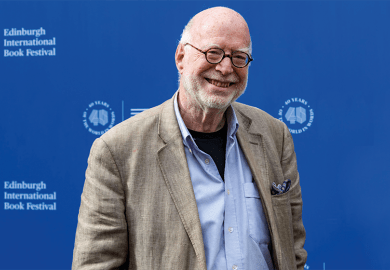The Arts and Humanities Research Council must create a distinct niche supporting collaborative larger-scale research that has an "economic impact" if it is to persuade the Government to protect its future funding levels.
This is the message Philip Esler, the AHRC's chief executive, was due to deliver to subject association heads in London this week as part of a speech intended to "draw a line in the sand" after criticism of the council's direction.
In the 1 May speech, Professor Esler is due to warn that the council is operating in a "new world" in which the three largest public funders for arts and humanities research (the AHRC, the Higher Education Funding Council for England and the British Academy) all now fall under the stewardship of the Department for Innovation, Universities and Skills.
There is a strong imperative for each of these funding bodies to remain distinctive, he will say, "lest the sense that one is duplicating the activities of another might lead to pressure for a 'rationalisation'".
He will state that the "unique selling point" of the AHRC and its future direction lies in funding "mainly large-scale" collaborative research that delivers economic impact.
He will say that there will be a continued commitment to support ing individual researchers, but that they are unlikely to be funded to produce monographs, as such support is not sufficiently distinct from Hefce funding. Funding will be consistent with the Government-driven goal of achieving economic impact.
Those who reject the economic impact agenda are "opposed to one of the two main objectives for which the AHRC has been established", he will say. Professor Esler was also due to explain the council's cuts to research grants, the researcher leave scheme and postgraduate awards, announced after the 2007 Comprehensive Spending Review (CSR).
He will blame cuts to grants and researcher leave on a 1 per cent decrease on money available for research in the three-year CSR settlement - equating to a loss of about £1 million in 2008-09 - and another £1 million in "carried forward funds" being absorbed into the allocation.
He will say that £12 million in postgraduate awards will be redirected to "vital" strategic programmes, including the cross-council themes set by Government, which had "insufficient funds" to cover them. The speech comes as MPs on the House of Commons Science Committee expressed concerns about arts research funding, including the reduced share of the science budget for arts research. They were also worried that the AHRC has been following DIUS demands too closely and about the effects of the AHRC's postgraduate cuts.
Register to continue
Why register?
- Registration is free and only takes a moment
- Once registered, you can read 3 articles a month
- Sign up for our newsletter
Subscribe
Or subscribe for unlimited access to:
- Unlimited access to news, views, insights & reviews
- Digital editions
- Digital access to THE’s university and college rankings analysis
Already registered or a current subscriber? Login



